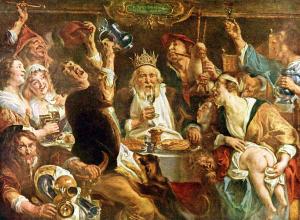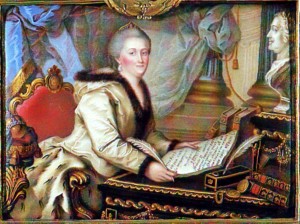The medieval kings would rather hunt than read, but they were defeated by their intellectual heirs. Leaders incapable of programming will share their fate in the future.
For a long time, reading and writing was scorned upon by the leaders of society. Most of the medieval European kings and nobles had no taste for such “priestly” skills. They preferred to fight wars and tournaments, to feast and to go hunting.

Facts, costs, and budgets were provided by literate assistants. It seems that precise information from these deputies often played second fiddle to personal relations. The promises of a hunting buddy counted for more than written, fact-checked information delivered by a nobody.
That culture died. Fast-forward to the Age of Enlightenment. Nobody admires a dumb, strong bully anymore. Their rule has been left in the dust by a new culture, where reading and writing were essential to run a thriving business, let alone a whole country. Leaders learned to read from childhood and were often boasting about their literary tastes and knowledge. The pen was indeed mightier than the sword.

I cannot help comparing this history with the data science and programming skills of today’s top managers and politicians. Very few of these leaders have learned the technical skills needed for analysing data to find answers as well as unexpected facts. They rely on deputies to present the facts in condensed reports. We often suspect that personal relations count for more than dry reports, even if the reports are filled with hard, verified facts.
How long will that culture survive? Will organisations run by data-illiterate CEOs, too, be left in the dust by a new culture? I think the future belongs to leaders who were taught how to work with data from childhood. Leaders who will boast of their successes at making predictions based on data mining. CEOs who would rather dine with an algorithms professor than a tax advisor.
We need to prepare for this shift. We need to teach the next generation these skills if they are to be the new kind of leaders rather than the old kind, and we need to do this before they go to university and start specialising.
The early literate nobles often had priests as their tutors, spreading the mystical art of reading and writing to the upper rungs of society. Who is fit to teach our next generation to be data-literate? Can our schools and our teachers meet this challenge, or will we need some alternative solution?
Notes
For more on historical literacy, see ourworldindata.org, sarahwoodbury.com and quora.com
The US has an English-language initiative for teaching computer science: https://csedweek.org/
For discussions in Danish, I recommend Christiane Vejlø and Stephen Alstrup
